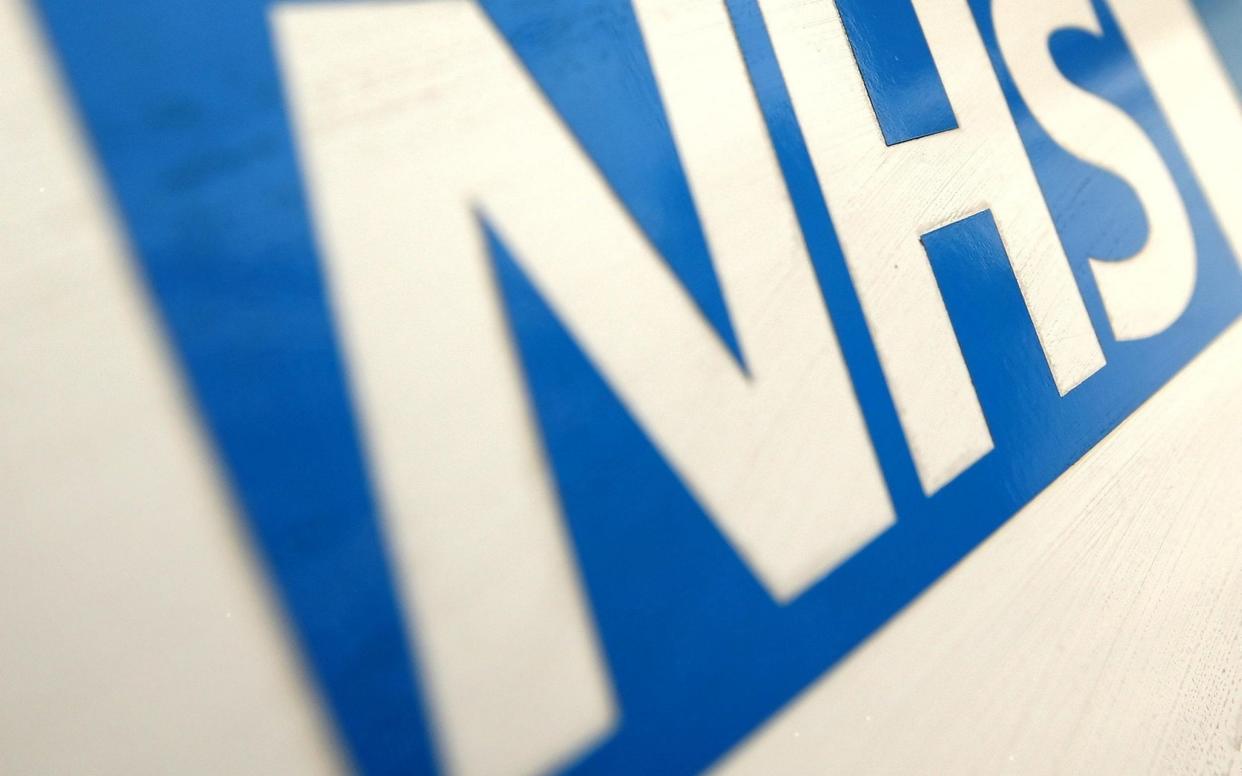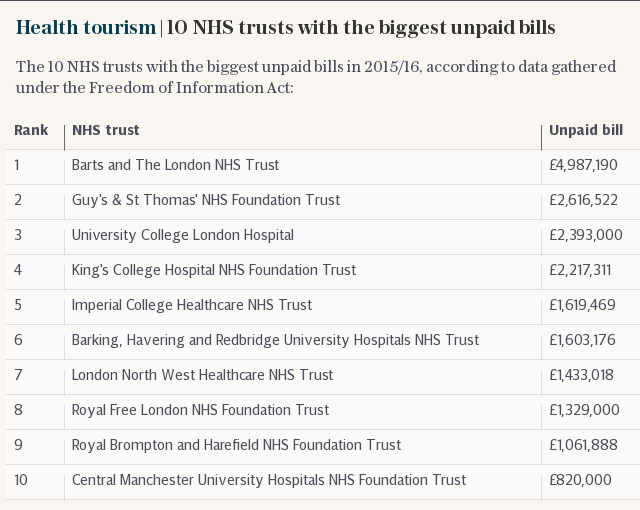Fears for NHS over scheme to stop 'health tourists'

New laws to make hospital staff routinely ask patients for utility bills, bank statements and proof of employment to identify those who should be paying for treatment have been criticised amid fears they could cause chaos in the NHS.
Patients will be made to pay “upfront” charges for treatment in an attempt to combat the £2 billion lost to “health tourists” every year.
But, the British Medical Association (BMA) last night warned that the scheme lacked clarity, risked causing confusion and could even cost the NHS more money.
Meanwhile, the Royal College of GPs said the move could have the knock-on effect of increasing the workload for family doctors at already overstretched medical centres.
People from outside Britain will need to pay for non-urgent care when they attend a hospital.
Guidance seen by The Telegraph reveals that NHS trusts have been instructed to ask patients for detailed evidence to establish whether or not they are entitled to free treatment. The guidance means anyone seeking non-urgent care will have to prove they are “settled” living in the UK to be eligible for free treatment.
The Department of Health form lists 32 questions which could be asked to try to establish proof of residency. Those struggling to prove that Britain is their home could be asked to provide utility bills and banks statement, among other things.

But, Dr Chaand Nagpaul, BMA Council chair, warned that new rules could end up costing more money.
“It is important that those accessing NHS services are eligible to do so, especially at a time when the NHS is under intense pressure and struggling to cope with patient demand,” he said. “However, the current charging proposals lack clarity around how and when overseas patients should be charged which does run the risk of causing confusion and an additional administrative burden within NHS Trusts.
“It is vital that patients do not face bureaucratic or financial obstacles that prevent acutely sick and vulnerable individuals from seeking necessary treatment. This would be morally unacceptable and could end up costing the NHS more money due to lack of timely treatment.”
Following a backlash to charging for non-residents visiting doctors’ surgeries, access to GPs will remain free for all. But, it is feared when the new laws come into effect visitors to the UK could visit GPs’ surgery rather than hospitals to avoid being charged.
Professor Helen Stokes-Lampard, Chair of the Royal College of GPs, said: “We have a number of concerns around plans to start charging. We recognise that the NHS must not be abused and measures must be taken to tackle health tourism - but it should not be the role of doctors and other health professionals to police this.
“Whilst charges are not applicable to GP services, we are concerned about the unintended consequences of increased demand on GPs and our teams from patients who are unable to get treatment in secondary care.
“We are also worried about ill patients choosing not to seek medical care because they cannot afford it - which could potentially affect some of the most vulnerable people in society.”
Health Minister Lord O'Shaughnessy said:
“The NHS is a cherished national institution that is paid for by British taxpayers.
“We have no problem with overseas visitors using our NHS as long as they make a fair financial contribution, just as the British taxpayer does. The new regulations simply require NHS bodies to make enquiries about, and then charge those who aren't entitled to free NHS care. All the money raised goes back into funding and improving care for NHS patients.
“We are clear that some vulnerable groups such as asylum seekers are exempt from charging and the NHS will never withhold urgent and immediately necessary treatment.”

 Yahoo News
Yahoo News 
